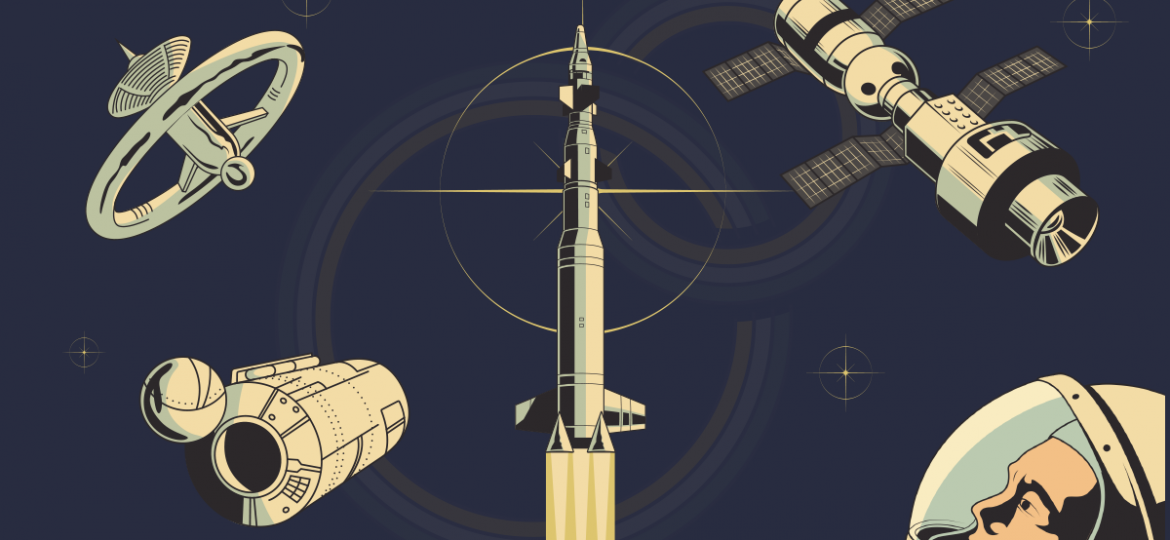
In Part 3 of our series on The Digital Future, we explore the human propensity to embrace technology at the expense of sustainability and assess progress toward global Space governance.
The Digital Future: Space
There have been increasing concerns about safety and potential collisions in outer space. There have been particular concerns about the lack of an effective global structure for Space Traffic Management. These concerns will only increase with time with more and more States becoming spacefaring nations, the launch of large-scale satellite constellations, and a continuing rise in orbital space debris.
These words, of vital consequence to the safety and sustainability of our Space environment in the year 2021, were written in the year 2014 at the Montreal Declaration, an interdisciplinary study of Global Space Governance combining the expertise of scientists, engineers, and business leaders from the Space community with leading experts in Space Law.
In 2011, a few individuals, myself included, saw a means to achieve Space safety and sustainability using digitalization to comprehensively monitor events in Earth’s near-Space environment. By using optical sensors mounted on satellites and data synthesis to digitally characterize, track and catalog hundreds of thousands of Space debris objects, we could predict the trajectories of debris, satellites and other spacecraft and use this information to prevent collisions in space. This idea was the genesis for NorthStar Earth and Space.
In the ensuing years, digital technology has driven astonishing advancements in humanity’s ability to construct satellites cheaply and deploy them at large scale. In 2021, Earth’s near-Space environment is teeming with satellites, mega-constellations launched with more planned, in a race to get satellites up and deliver new and innovative services as part of the future trillion-dollar New Space Economy. All this progress is exciting, but to look closer is to see a different race underway and one that is all too familiar.
In the early 20th century, with the technological advancement of the internal combustion engine, automobiles became available to the public. In reply to this progress, roads and highway systems were rapidly developed at global scale. It was only in the 1960’s, driven by mounting casualties and fatalities, that road travel governance and automobile safety standards were universally established.
In 1903 the Wright Brothers launched their historic flight at Kitty Hawk, North Carolina. Over fifty years later, following the 1956 Grand Canyon mid-air collision which killed all 128 passengers on board, the US Federal Aviation Administration (FAA) assumed control of all air-traffic responsibility over the United States of America. Other nations followed this model, establishing modern air traffic governance.
The automotive and air travel industries exhibit a development pattern that is a constant through all human history. New technologies are immediately adopted and implemented, leaving safety and sustainability as afterthoughts for later consideration. On Earth in 2021, as the world battles to stem the tide of centuries of environmental mismanagement, the consequences are clear. But today, seven years after the Montreal Declaration of 2014, how are we doing in Space?
The answer is, there is progress.
In 2019, The United Nations Office for Outer Space Affairs adopted 21 Guidelines for the Long-term Sustainability of Outer Space Activities, providing guidance on the policy and regulatory framework for space activities; safety of space operations; international cooperation, capacity-building and awareness; and scientific and technical research and development.
In 2019 The World Economic Forum announced an initiative encouraging responsible behaviour in space via a Space Sustainability Rating system, scoring a mission’s sustainability as it relates to debris mitigation and alignment with international guidelines.
In 2020, based on an initiative from the United Kingdom, the UN General Assembly adopted a formal resolution on Reducing Space Threats through Norms, Rules and Principles of Responsible Behaviours aiming to broker an international consensus on responsible behaviour in space.
If these initiatives are ‘top-down’, the good news is that on May 3, 2021, a few days from the writing of this article, countries of the world will individually respond to the UN resolution on Reducing Space Threats through Norms, Rules and Principles of Responsible Behaviours. The process is moving toward the only way change is ever effected, from the bottom up, and countries who take the lead will be rewarded.
Space governance will not be achieved overnight or by any entity alone. NorthStar is part of a larger mosaic of commercial companies, scientific, academic and governmental concerns, attacking the challenges with new and innovative approaches. Most encouragingly, as the New Space Economy accelerates, there is emerging consensus that responsible behavior, safety, and sustainability in Space are imperatives, and not afterthoughts to be considered down the road.
Seven years out from the Montreal Declaration of 2014, the world is actively preparing to create global standards for the future governance of Space. A decade out from NorthStar’s genesis in 2011, we are privileged to play a part in this endeavor. In the name of safe and sustainable space, let us all do our part to win this race, because it is not one we can afford to lose.
Stewart Bain, Co-founder and CEO, NorthStar Earth & Space